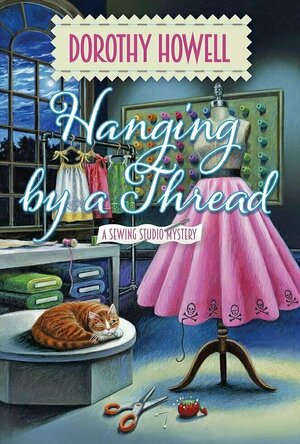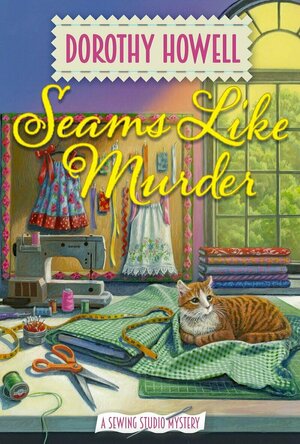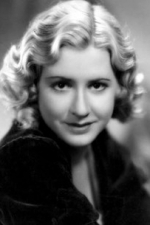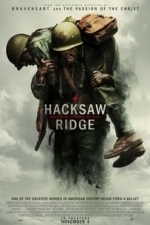Search

Hanging by a Thread
Book
From USA Today bestselling author Dorothy Howell, the charming new cozy mystery featuring...

Seams Like Murder
Book
From USA Today bestselling author Dorothy Howell, a brand new cozy mystery series featuring...
Bob Mann (459 KP) rated Hacksaw Ridge (2016) in Movies
Sep 29, 2021
In God, and Doss, we Trust.
Those dreaded words – “Based On A True Story” – emerge again from the blackness of the opening page. Actually, no. In a move that could be considered arrogant if it wasn’t so well researched, here we even lose the first two words.
When a war film is described as being “visceral” then you know you need to steel yourself mentally for what you might see. But given that this film is based around the horrendously brutal combat between the Americans and the Japanese on the Pacific island of Okinawa in 1945 this is a warning well-founded. For the battle scenes in this film are reminiscent of the opening scenes of “Saving Private Ryan” in their brutality: long gone are the war films of John Wayne where there would be a shot, a grasp of the stomach and a casual descent to earth.
But before we get to the battle itself, the film has a leisurely hour of character building which is time well spent (although it could have perhaps been trimmed a tad tighter). Desmond Doss (Andrew Garfield, “The Amazing Spiderman”, “Never Let Me Go”) grows up a God-fearing youngster in the beautiful surroundings of the Blue Ridge Mountains of Virginia. His alcoholic father (Hugo Weaving, “The Lord of the Rings”, “The Matrix”) has been mentally traumatised by the First World War, further strengthening Desmond’s fervent belief in following the Ten Commandments; most notably “Thou Shalt Not Kill”. But his patriotic sense of duty is also strong, and Doss signs up after Pearl Harbor and is posted to a rifle brigade that – given his refusal to even touch a rifle – puts him on a collision course with the US Army. It also (obviously) disrupts his romance with nurse sweetheart Dorothy (Teresa Palmer).
This is really two films in one, with the first half setting up extremely well the characters that make the second half so effective. For you care – really care – for what happens to most of the characters involved, especially the zealous and determined Doss who has nothing to face the Japanese hoards with but a medical bag. The feelings that comes to top of mind are awe that these real people actually had to go through this horror and hope that in today’s increasingly unstable political world we will never need to again face such inhumanity of man against man again.
Andrew Garfield really carries this film, and his Best Actor Oscar nomination is well-deserved. He is perfectly cast as the (onward) Christian soldier. Also outstanding is Hugo Weaving in an emotional and persuasive role playing opposite Rachel Griffiths (“Saving Mr Banks”) his wife. But the real acting surprise here for me was Vince Vaughn (“The Wedding Crashers”) who plays the no-nonsense platoon Sergeant Howell: never one of my favourite actors, here he brings in a warm and nuanced performance that ends with a memorable action scene.
Also worthy of specific note is Dan Oliver (“Mad Max: Fury Road”) and his team of special effects technicians, the stunt teams (led by Kyle Gardiner and Mic Rodgers), production designer Barry Robinson and the hair and makeup team, all of who collaborate to make the final half of the film so gripping.
The film marks a comeback from the film society ‘naughty step’ of Mel Gibson after his much publicised fall from grace in the mid-noughties. A Best Director Oscar nomination would appear to cement that resurrection. For this is a phenomenal achievement in direction and one that should be applauded.
The film bears closest comparison with the interesting two-film combo from Clint Eastwood – “Flags of our Fathers” (from the American viewpoint) and “Letters from Iwo Jima” (from the Japanese viewpoint). While all three films share the same blood and guts quotient, with “Hacksaw Ridge” edging this award, the Eastwood films tend to have more emotional depth and a more thought-provoking treatment of the Japanese angle. In “Hacksaw Ridge”, while the war crimes of the Japanese are clear, the war crimes of the Americans are quietly cloaked behind a cryptic line (“They didn’t make it”).
That being said, there is no crime in a rollicking good story well told, and “Hacksaw Ridge” is certainly that. This was a film I did not have high hopes for. But I was surprised to be proved wrong. Recommended.
When a war film is described as being “visceral” then you know you need to steel yourself mentally for what you might see. But given that this film is based around the horrendously brutal combat between the Americans and the Japanese on the Pacific island of Okinawa in 1945 this is a warning well-founded. For the battle scenes in this film are reminiscent of the opening scenes of “Saving Private Ryan” in their brutality: long gone are the war films of John Wayne where there would be a shot, a grasp of the stomach and a casual descent to earth.
But before we get to the battle itself, the film has a leisurely hour of character building which is time well spent (although it could have perhaps been trimmed a tad tighter). Desmond Doss (Andrew Garfield, “The Amazing Spiderman”, “Never Let Me Go”) grows up a God-fearing youngster in the beautiful surroundings of the Blue Ridge Mountains of Virginia. His alcoholic father (Hugo Weaving, “The Lord of the Rings”, “The Matrix”) has been mentally traumatised by the First World War, further strengthening Desmond’s fervent belief in following the Ten Commandments; most notably “Thou Shalt Not Kill”. But his patriotic sense of duty is also strong, and Doss signs up after Pearl Harbor and is posted to a rifle brigade that – given his refusal to even touch a rifle – puts him on a collision course with the US Army. It also (obviously) disrupts his romance with nurse sweetheart Dorothy (Teresa Palmer).
This is really two films in one, with the first half setting up extremely well the characters that make the second half so effective. For you care – really care – for what happens to most of the characters involved, especially the zealous and determined Doss who has nothing to face the Japanese hoards with but a medical bag. The feelings that comes to top of mind are awe that these real people actually had to go through this horror and hope that in today’s increasingly unstable political world we will never need to again face such inhumanity of man against man again.
Andrew Garfield really carries this film, and his Best Actor Oscar nomination is well-deserved. He is perfectly cast as the (onward) Christian soldier. Also outstanding is Hugo Weaving in an emotional and persuasive role playing opposite Rachel Griffiths (“Saving Mr Banks”) his wife. But the real acting surprise here for me was Vince Vaughn (“The Wedding Crashers”) who plays the no-nonsense platoon Sergeant Howell: never one of my favourite actors, here he brings in a warm and nuanced performance that ends with a memorable action scene.
Also worthy of specific note is Dan Oliver (“Mad Max: Fury Road”) and his team of special effects technicians, the stunt teams (led by Kyle Gardiner and Mic Rodgers), production designer Barry Robinson and the hair and makeup team, all of who collaborate to make the final half of the film so gripping.
The film marks a comeback from the film society ‘naughty step’ of Mel Gibson after his much publicised fall from grace in the mid-noughties. A Best Director Oscar nomination would appear to cement that resurrection. For this is a phenomenal achievement in direction and one that should be applauded.
The film bears closest comparison with the interesting two-film combo from Clint Eastwood – “Flags of our Fathers” (from the American viewpoint) and “Letters from Iwo Jima” (from the Japanese viewpoint). While all three films share the same blood and guts quotient, with “Hacksaw Ridge” edging this award, the Eastwood films tend to have more emotional depth and a more thought-provoking treatment of the Japanese angle. In “Hacksaw Ridge”, while the war crimes of the Japanese are clear, the war crimes of the Americans are quietly cloaked behind a cryptic line (“They didn’t make it”).
That being said, there is no crime in a rollicking good story well told, and “Hacksaw Ridge” is certainly that. This was a film I did not have high hopes for. But I was surprised to be proved wrong. Recommended.


